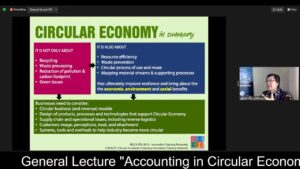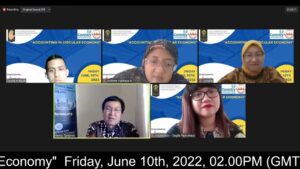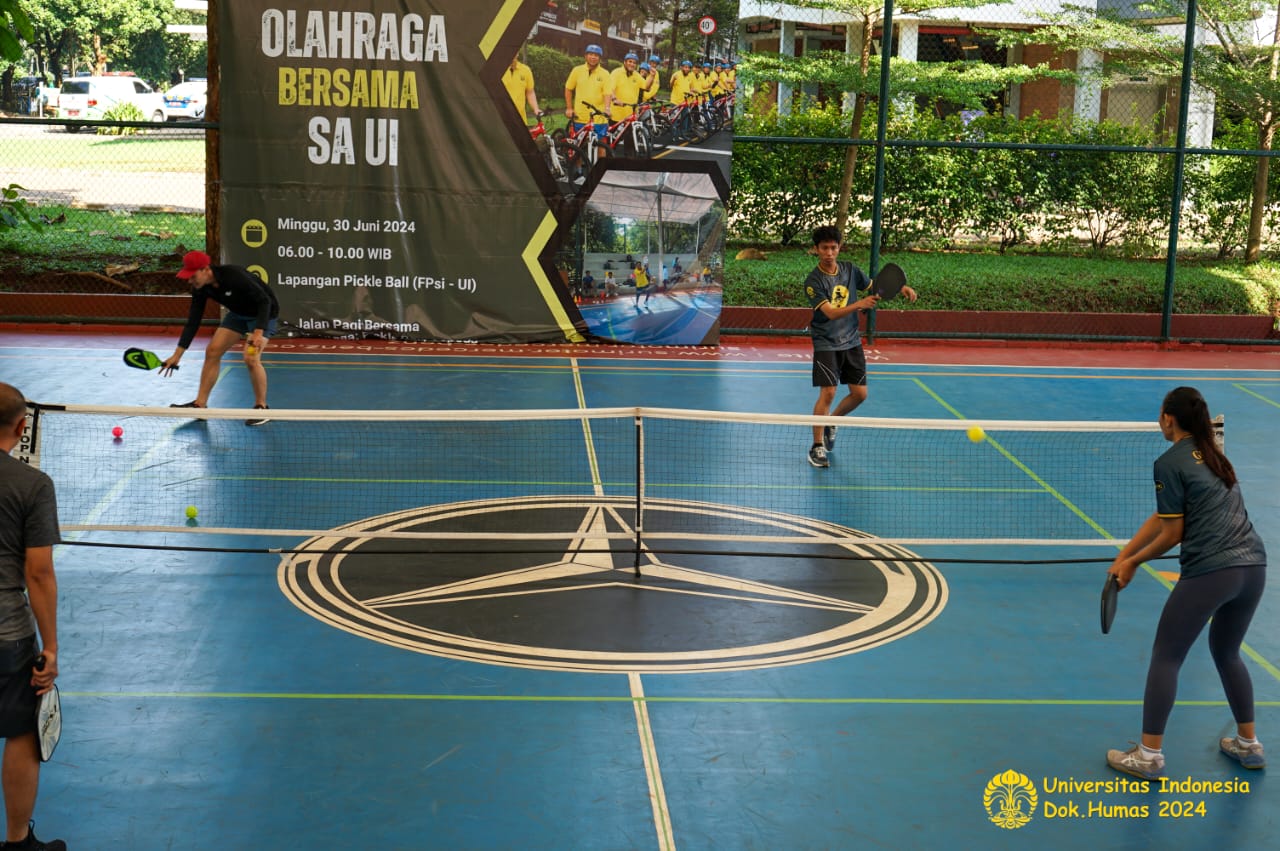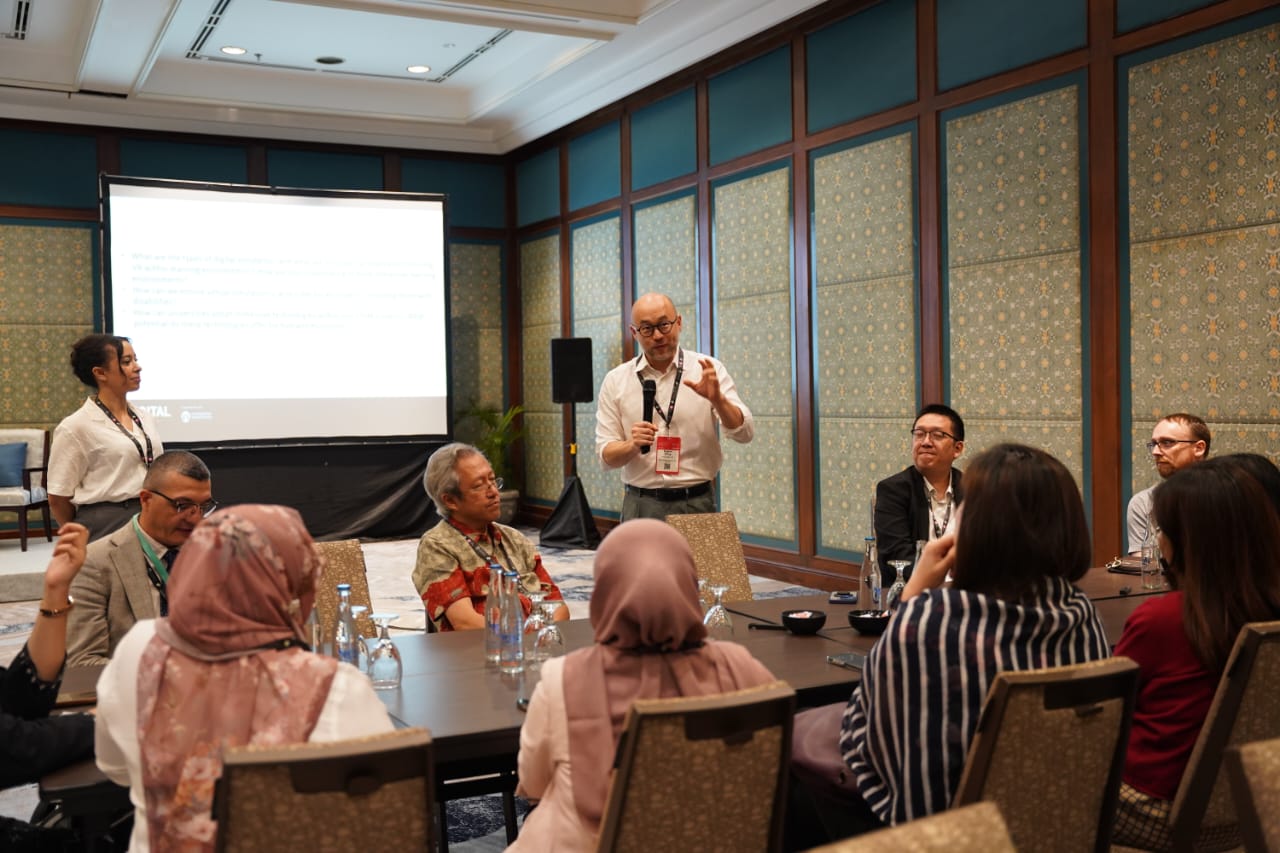
In a bid to participate towards the transforming economy on to a more “greener” or circular model, the Vocational Programme of Accounting held an online inbound lecture titled “Accounting in Circular Economy” on Friday (10/06).
Present as speakers on the occasion were Prof. Benny Tjahjanto, Ph.D, Professor of Sustainability and Supply Chain Management as well as co-leader of the Sustainable Production and Consumption cluster of the Centre for Business in Society (CBiS), Coventry University, UK, and lecturer of Accounting at the same programme, Sandra Aulia Z., SE, Ak., M.S.Ak., CA, CPA, CICS, CRMP, CACP.
Benny stated that the increase in the carbon footprint in Indonesia poses a big impact on the environment. “The increase in carbon footprint is triggered by unprocessed residues from various industrial products so that they have an impact on the surrounding environment. The implementation of the circular economy is one of the strategies that companies can use to reduce the carbon footprint in Indonesia,” Benny said.
Circular economy is an alternative to linear economies predominating in society. Goods produced in circular economy are designed in such a way that resources are used as long as possible and utilities are made use of as maximally as possible, before being recovered and regenerated into other products. This leads to an elimination of the presence of waste, since waste are made use of to generate goods and renewable energy.
Businesses may make use of several models in order to meet zero-waste targets in the future: dematerialisation; on demand production/provision of services; recovery of secondary products or by-products; repair, refurbish, remanufacture, and recondition; and performance based and pay-per-use Product Service Systems (PSS).
Benny added that circular economy “is not merely a concept that places priority on recycling, waste management processes, reduction of pollution and carbon footprint, but is also an attempt towards the avoidance of waste, resource efficiency, circular processes of consumption and reuse, and the mapping of the flow of material and supporting processes.”
It is to be noted that the government also has a stake in the implementation of circular economies. In order to meet UN Sustainable Development Goals number 12, namely Responsible Consumption and Production, the government has started promoting circular economy concepts and strategies over the past few years.
The role accounting plays in circular economy models is demonstrated by research and analysis on product yield, from production to residue, and their reprocessing into recycled products of value.
The role accounting plays in circular economy models is demonstrated by research and analysis on product yield, from production to residue, and their reprocessing into recycled products of value.

The Director of Vocational Programmes, Padang Wicaksono, S.E., Ph.D, stated that the public, especially students, need to be informed and educated on circular economy. “Circular economy can also be implemented by students currently running businesses by keep using resources as long as possible, and continuously recovering and regenerating products.”



